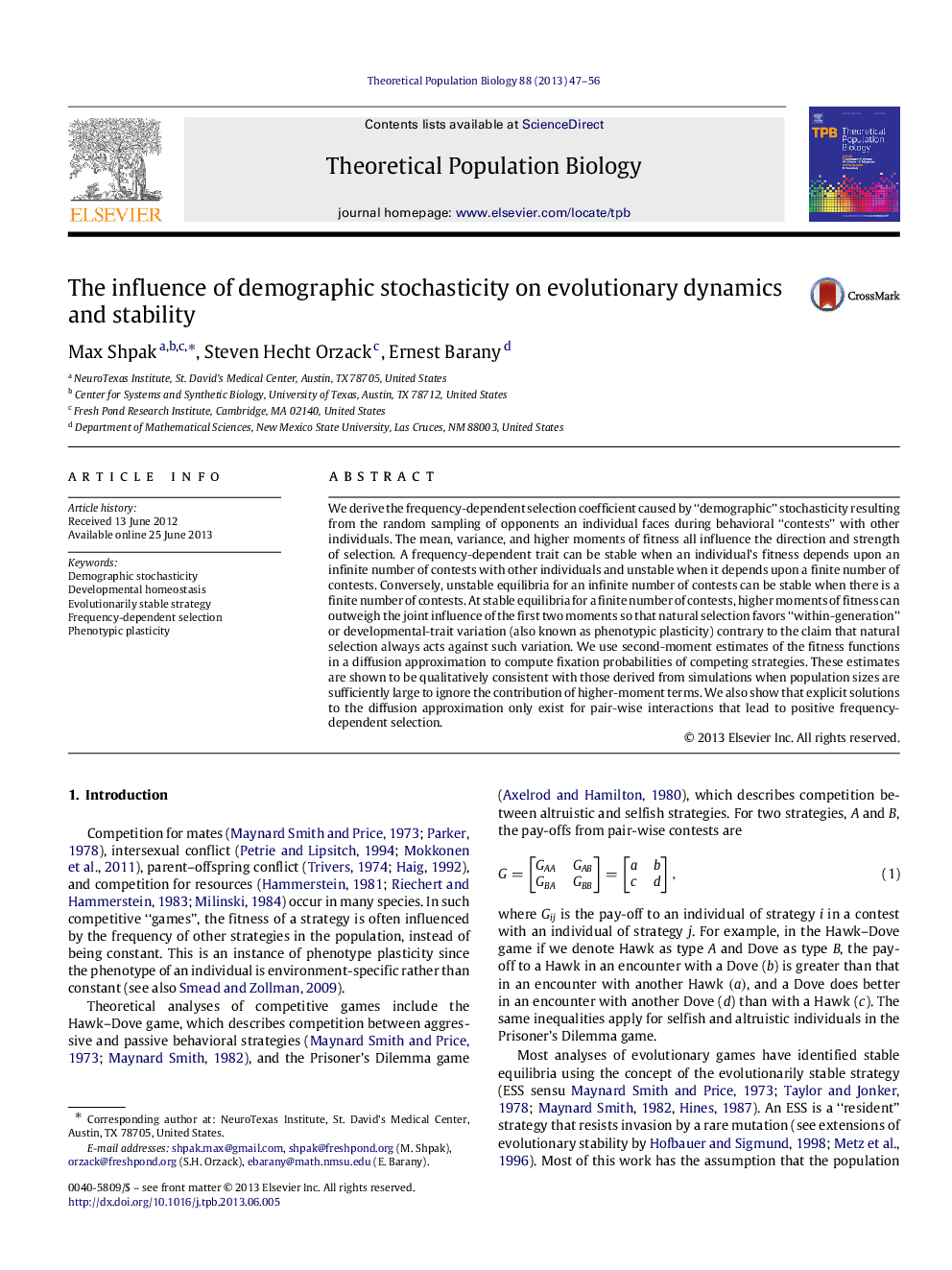| Article ID | Journal | Published Year | Pages | File Type |
|---|---|---|---|---|
| 4502439 | Theoretical Population Biology | 2013 | 10 Pages |
We derive the frequency-dependent selection coefficient caused by “demographic” stochasticity resulting from the random sampling of opponents an individual faces during behavioral “contests” with other individuals. The mean, variance, and higher moments of fitness all influence the direction and strength of selection. A frequency-dependent trait can be stable when an individual’s fitness depends upon an infinite number of contests with other individuals and unstable when it depends upon a finite number of contests. Conversely, unstable equilibria for an infinite number of contests can be stable when there is a finite number of contests. At stable equilibria for a finite number of contests, higher moments of fitness can outweigh the joint influence of the first two moments so that natural selection favors “within-generation” or developmental-trait variation (also known as phenotypic plasticity) contrary to the claim that natural selection always acts against such variation. We use second-moment estimates of the fitness functions in a diffusion approximation to compute fixation probabilities of competing strategies. These estimates are shown to be qualitatively consistent with those derived from simulations when population sizes are sufficiently large to ignore the contribution of higher-moment terms. We also show that explicit solutions to the diffusion approximation only exist for pair-wise interactions that lead to positive frequency-dependent selection.
